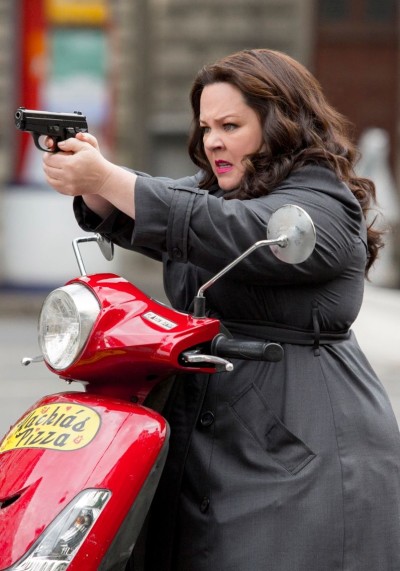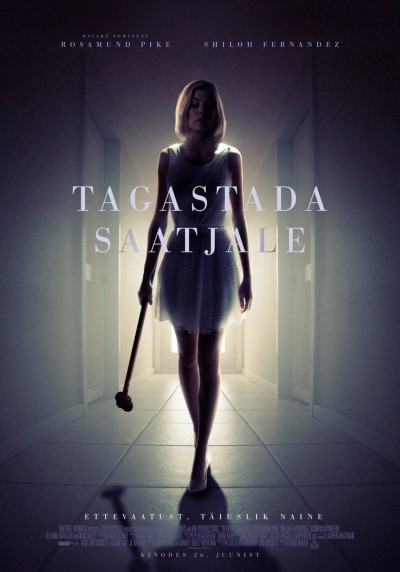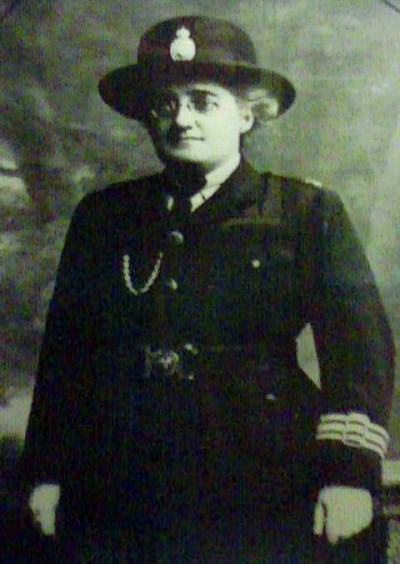 It has been a good summer for undercover action heroines at the cinema. And, by “undercover”, I mean films where they are not necessarily the lure, but once you get in there, the makers deliver above and beyond what was expected. First, there was Mad Max: Fury Road, in which, despite the title, Max was more a supporting character to Charlize Theron’s Imperator Furiosa. And now, we get M-I:RN, which does something very similar; by some standards Ethan Hunt is not, apparently, the protagonist, in that it is not necessarily his actions which drive the film. It can be argued that position belongs equally to Rebecca Ferguson’s improbably-named MI5 operative, Ilsa Faust, who rescues Hunt from apparent certain death on more than one occasion, and whose mission to stop the mysterious “Syndicate” allows the nominal hero to come along for the ride.
It has been a good summer for undercover action heroines at the cinema. And, by “undercover”, I mean films where they are not necessarily the lure, but once you get in there, the makers deliver above and beyond what was expected. First, there was Mad Max: Fury Road, in which, despite the title, Max was more a supporting character to Charlize Theron’s Imperator Furiosa. And now, we get M-I:RN, which does something very similar; by some standards Ethan Hunt is not, apparently, the protagonist, in that it is not necessarily his actions which drive the film. It can be argued that position belongs equally to Rebecca Ferguson’s improbably-named MI5 operative, Ilsa Faust, who rescues Hunt from apparent certain death on more than one occasion, and whose mission to stop the mysterious “Syndicate” allows the nominal hero to come along for the ride.
While I’ll admit this site might just have a bit of a bias in regard to such things, I have to mention it isn’t just my prejudice which thinks so. A number of writers think Ferguson “stole” the movie from Tom Cruise, was “every bit the equal of Ethan Hunt”, or is straight up, “a badass goddess.” I can’t argue with any of that at all, and will add the significant bonus of there being basically zero romantic chemistry or sexual tension here. While the latest entry in the series does have much in common with classic 007 – globetrotting, gadgets and one-liners – the script, also written by director McQuarrie, simply isn’t interested in the hero bedding anyone, and the film is all the better for this, because it’s a hackneyed angle, which has absolutely been done to death. I have no clue (and, to be honest, don’t care) whether Cruise’s Scientology or alleged sexuality are in any way responsible for this chastity, or if it’s more to do with his character supposedly being happily married – at least, he was in the last film, since curiously, there is absolutely zero mention of Julia Hunt in this one, dead or alive.
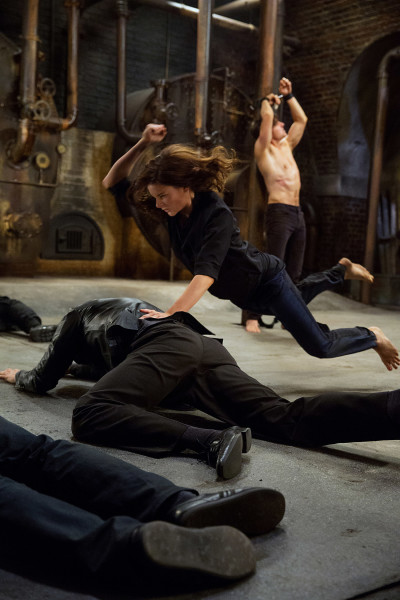 We first meet Ilsa after Hunt has been lured in by the Syndicate, and drugged in a London record-shop. He wakes to find himself dangling in the Syndicate’s torture-chamber, and about to be interrogated by someone with the ominous nickname of “the Bone Doctor”. Faust is there too, as another operative, but helps Hunt to escape, taking out more than her share of bad guys, since the hero spends most of the scene hanging from the ceiling like a well-muscled piñata. She stays behind to maintain her cover, and a somewhat confused Hunt escapes. He next encounters Faust at the Vienna Opera House, where she is one of a number of assassins sent after the Austrian Chancellor, as part of the Syndicate’s plans to destabilize the world and… something something world domination. Look: they’re the bad guys, m’kay? Motivation is not the script’s strong suit: we eventually find out they’re after a large chunk of money, which is a bit of a surprise, considering they apparently aren’t short of a dollar or two for operations. Guess you can never have too much.
We first meet Ilsa after Hunt has been lured in by the Syndicate, and drugged in a London record-shop. He wakes to find himself dangling in the Syndicate’s torture-chamber, and about to be interrogated by someone with the ominous nickname of “the Bone Doctor”. Faust is there too, as another operative, but helps Hunt to escape, taking out more than her share of bad guys, since the hero spends most of the scene hanging from the ceiling like a well-muscled piñata. She stays behind to maintain her cover, and a somewhat confused Hunt escapes. He next encounters Faust at the Vienna Opera House, where she is one of a number of assassins sent after the Austrian Chancellor, as part of the Syndicate’s plans to destabilize the world and… something something world domination. Look: they’re the bad guys, m’kay? Motivation is not the script’s strong suit: we eventually find out they’re after a large chunk of money, which is a bit of a surprise, considering they apparently aren’t short of a dollar or two for operations. Guess you can never have too much.
Turns out the head of the Syndicate sent Faust to kill the Chancellor to test her, suspecting her of involvement in the escape of Hunt. So, when she fails there too, she has to team up with Hunt, on a mission to track down an electronic ledger supposedly containing the names of all the Syndicate operatives. This is held in the depths of a Moroccan secure facility, which gives Hunt a chance to show off his skills – except, he isn’t able to get out in time, and has to be rescued by Ilsa yet again. If I were Hunt’s employer, I’d look at downgrading him from impossible missions, to somewhat tricky ones. Faust absconds with the file, giving it to her MI5 handler, only to be told her job is not over, and sends her back in again – though inexplicably, the head of the Syndicate appears to have a far laxer policy on employee failure than most evil overlords, and does not execute her on the spot for her multiple failures and apparent reckless disloyalty. Still, it seems fair to say that it is Faust’s choices, more than Hunt’s, that drive the plot: she acts, while he reacts. It wouldn’t take much in the way of a rewrite for this to become the long-awaited Modesty Blaise film, with Hunt converting into trusty sidekick, Willie Garvin.
In terms of action, there’s a particular nod to the 007 franchise in Faust’s signature move, which appears to echo Xenia Onatopp from Goldeneye, albeit seen through the lens of Lucha Underground. I’m not sure which is more impressive: that’s it’s Ferguson actually doing it (she says, “I thought it was never gonna happen, then I nailed it. I remember the excitement and the kick that it gave me. I asked them, ‘Can I do it more?’ It’s such a good move.”), or that she does it in a freakin’ ball-gown. On the other hand, Ilsa is smart enough to kick off her high-heels when they impede her. While Internet chatter had this as perhaps a sly poke at the heroine of Jurassic World, who appears to be nailed into her shoes even when being chased by velociraptors, it appears the scene in MI:GN was shot independently.
It’s also interesting to note the way the movie’s plot in some aspects mirrors that of Turandot, the opera being staged in Vienna. Per Wikipedia, the story “involves Prince Calaf, who falls in love with the cold Princess Turandot. To obtain permission to marry her, a suitor has to solve three riddles; any wrong answer results in death. Calaf passes the test, but Turandot still refuses to marry him.” [Or, for non-fans of classical music: it’s the one with that song by the fat guy with a beard] Hmm: might those riddles be, escaping from custody, surviving the theatre assault, and retrieving the ledger? Have to say, I’d go to the opera more often, if I was convinced it would resembled the film, rather than being more like watching sofas get re-arranged. Perhaps a more directly relevant inspiration came be seen in more recent cultural history, Ferguson saying, “Tom, Chris, and I had talked about bringing in this old starlet idea. If you look back at Veronica Lake and Ingrid Bergman, that style of the ’40s and then roughing it up with a 2015 sort of fuck off attitude.” It’s a combination of old-school grace and new-school ruthless efficiency which helps make for a winning product.
 It’s always nice to see a new potential franchise pop up. Even if it has now been almost 50 years since Mission: Impossible first hit the TV screens, this is certainly a new direction for the franchise (though we acknowledge previous candidates, such as Maggie Q in the third film). Ferguson’s star is likely the biggest beneficiary of the film’s success, and I’m sure she’ll now be in demand; a career as an action heroine could be hers, should she want it If Ilsa Faust shows up in the next entry – or, better yet, gets spun off into her own series – I’d have absolutely no complaints. Fingers crossed that’s a Mission which will prove Entirely Possible some day.
It’s always nice to see a new potential franchise pop up. Even if it has now been almost 50 years since Mission: Impossible first hit the TV screens, this is certainly a new direction for the franchise (though we acknowledge previous candidates, such as Maggie Q in the third film). Ferguson’s star is likely the biggest beneficiary of the film’s success, and I’m sure she’ll now be in demand; a career as an action heroine could be hers, should she want it If Ilsa Faust shows up in the next entry – or, better yet, gets spun off into her own series – I’d have absolutely no complaints. Fingers crossed that’s a Mission which will prove Entirely Possible some day.
Dir: Christopher McQuarrie
Star: Rebecca Ferguson, Tom Cruise, Simon Pegg, Jeremy Renner
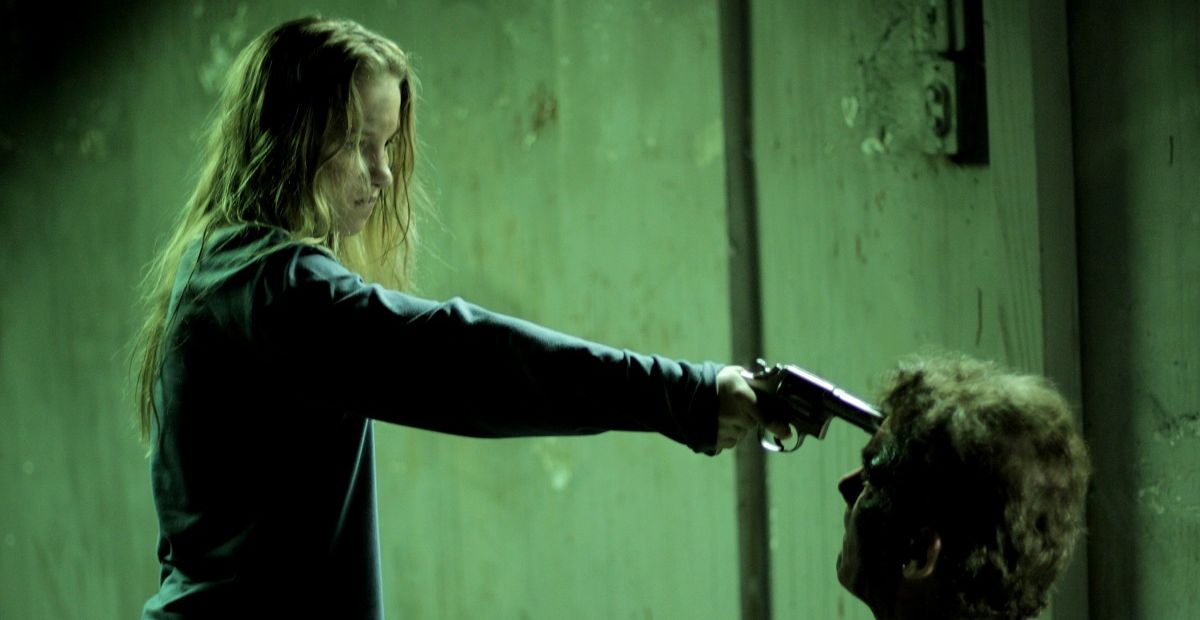 I’ve been watching horror movies for over 30 years now, and appreciate that a certain amount of idiotic behaviour is to be expected. People will go into cellars. They will stand right beside the apparently-dead body of a masked killer. They will trip over those pesky tree roots. They will split up. That goes with the territory. But this entire film is predicated on a terrible decision which the lead character makes early, then refuses to reconsider, though the results clearly indicate its wrongness and she could change her mind at any time. Eve (Ivlev) has been captured by the psychopathic Phil (Tyson), but lures him into a trap by feigning unconsciousness, bludgeoning him with a brick and chaining hum up in her place. Escaping the house, she finds herself in the middle of nowhere, but gets the keys to the truck. At this point, what absolutely any sensible person would do, is high-tail it out of there, notify the authorities and let them take over.
I’ve been watching horror movies for over 30 years now, and appreciate that a certain amount of idiotic behaviour is to be expected. People will go into cellars. They will stand right beside the apparently-dead body of a masked killer. They will trip over those pesky tree roots. They will split up. That goes with the territory. But this entire film is predicated on a terrible decision which the lead character makes early, then refuses to reconsider, though the results clearly indicate its wrongness and she could change her mind at any time. Eve (Ivlev) has been captured by the psychopathic Phil (Tyson), but lures him into a trap by feigning unconsciousness, bludgeoning him with a brick and chaining hum up in her place. Escaping the house, she finds herself in the middle of nowhere, but gets the keys to the truck. At this point, what absolutely any sensible person would do, is high-tail it out of there, notify the authorities and let them take over.





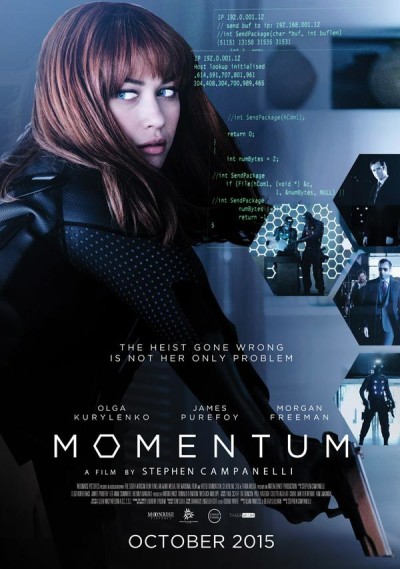

 Just in time for Halloween comes this atmospherically and spooky tale, in which teenager Dora (Rose) has a day – and a night – to remember. It begins with her discovering that she’s pregnant, news which initially causes her to stay home and brood over her future. She changes her mind and texts her boyfriend to come pick her up; he never shows, and instead she finds herself increasingly tormented by young, masked figures, who repeatedly knock on her door. The doctor (Sutherland) makes a house call, only to discover Dora has gone from four weeks to four months pregnant in just a few hours. Dora is also being plagued by nightmarish visions sacrifice, and it becomes clear that those little figures have some very unpleasant plans for our heroine and her baby-to-be.
Just in time for Halloween comes this atmospherically and spooky tale, in which teenager Dora (Rose) has a day – and a night – to remember. It begins with her discovering that she’s pregnant, news which initially causes her to stay home and brood over her future. She changes her mind and texts her boyfriend to come pick her up; he never shows, and instead she finds herself increasingly tormented by young, masked figures, who repeatedly knock on her door. The doctor (Sutherland) makes a house call, only to discover Dora has gone from four weeks to four months pregnant in just a few hours. Dora is also being plagued by nightmarish visions sacrifice, and it becomes clear that those little figures have some very unpleasant plans for our heroine and her baby-to-be.

